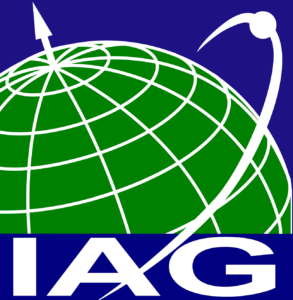PhD Positions at DGFI-TUM
Website Deutsches Geodätisches Forschungsinstitut of the Technical University of Munich (DGFI-TUM)
In the framework of a collaborative project, the Astronomical Institute of the University of Bern (AIUB) and the
Deutsches Geodätisches Forschungsinstitut of the Technical University of Munich (DGFI-TUM) are accepting
applications for three PhD Positions at the Astronomical Institute of the University of Bern (AIUB)
and the Deutsches Geodätisches Forschungsinstitut of the Technical
University of Munich (DGFI-TUM)
Two of the positions are affiliated with AIUB and located in Bern (Switzerland), one position is
affiliated with DGFI-TUM and located in Munich (Germany).
Positioning, navigation and monitoring of the earth system, especially sea level changes, require a
very precise and long-term stable, unique global reference. The International Terrestrial Reference
Frame (ITRF), which is calculated on the basis of long observation time series from the space-
geodetic techniques VLBI, SLR, GNSS and DORIS, provides the global reference. However, the
accuracy and long-term stability are not yet high enough to capture small changes in the Earth
system with the target accuracy of 1 mm and 0.1 mm/year. Technical advancements in observation
methods are expanding their individual potential, but this has not yet been fully exploited for the ITRF.
A new joint project of AIUB and DGFI-TUM aims to improve the accuracy and long-term stability of
future ITRF solutions by more effectively utilizing the strengths of different geodetic space techniques.
At AIUB, one PhD candidate will focus on improving GNSS solutions to strengthen their contribution
to the International Terrestrial Reference Frame (ITRF). This includes orbit modeling aspects but also
questions on optimizing the benefit of the publicly available satellite antenna calibration of the Galileo
and GPS Block IIIA satellites.
The second PhD candidate at AIUB will evaluate different ITRF solutions, starting with the latest ITRS
realizations from the three official IERS Combination Centers. Throughout the project, new reference
frame solutions will be computed by DGFI-TUM exploiting the strengths of the techniques. Since
deficiencies in the ITRF accuracy are one of the main limitations of sea level measurements, the
candidate will perform a quality control from the analysis of how the different ITRF solutions affect the
orbits of altimeter satellites.
At DGFI-TUM, the PhD candidate will investigate the sensitivity of VLBI and SLR solutions to
potential modeling deficiencies and explore how enhancements in long-term VLBI and SLR solutions
can improve ITRF datum parameters. Furthermore, the candidate will combine the results of the two
groups and work on the fully consistent integration of VLBI, SLR and GNSS to calculate an improved
ITRF solution.
Addressing and minimizing systematic differences between the three techniques is a key objective,
benefiting from the close collaboration between AIUB and DGFI-TUM. The three PhD candidates will
benefit from the great expertise of the two partners in the different fields of work, with the teams being
closely linked and engaged in an intensive scientific exchange throughout the project. The individual
PhD topics are also of high international relevance and in the focus of working groups of the
International Association of Geodesy (IAG). This underscores the significance of this research and
supports the exchange among the PhD candidates with the international scientific community.
Deutsches Geodätisches Forschungsinstitut (DGFI-TUM)
TUM School of Engineering and Design
Technical University of Munich
Astronomisches Institut (AIUB)
Education:
The candidates are expected to have successfully completed the master thesis (diploma / “Lizentiat”)
preferred in geodesy, astronomy, mathematics, physics, or a related discipline. Experience in GNSS,
SLR and VLBI data processing or in using the Bernese GNSS Software package, and in computer
literacy (coding in modern Fortran, C++, Perl, and/or Python) are not a requirement, but an
advantage. The candidates are expected to speak and write English fluently. The candidates should
start working at AIUB or DGFI-TUM as soon as possible.
The positions at AIUB are scheduled for four years. The salary follows the guidelines of the University
of Bern and depends on the qualification of the successful candidate. The position at DGFI-TUM is
initially scheduled for three years with a salary according to employment category E13 (100%) of the
collective labor contract TV-L.
Interested?
Do not hesitate to contact us with questions regarding the position. We are looking forward to
receiving your application with all relevant documents (CV, university diploma copies, record of study,
possible references, a motivation letter which should express a preference for one of the PhD topics
with an explanatory statement) per email (one PDF) not later than 31.03.2025 to:
Prof Dr. Rolf Dach Prof. Florian Seitz
Leiter Satellitengeodäsie Gruppe Deutsches Geodätisches Forschungsinstitut
Astronomisches Institut TU München
Universität Bern
E-mail: E-mail:
Phone: ++41 31 684 85 93 Phone: ++49 89 289 237 57
Informal enquiries may be obtained at the above addresses as well.
TUM and the University of Bern strive to raise the proportion of women in their workforce and
explicitly encourage applications from qualified women. Disabled applicants will be preferred in case
of equivalent suitability, aptitude and professional performance.
To apply for this job please visit www.bernese.unibe.ch.



